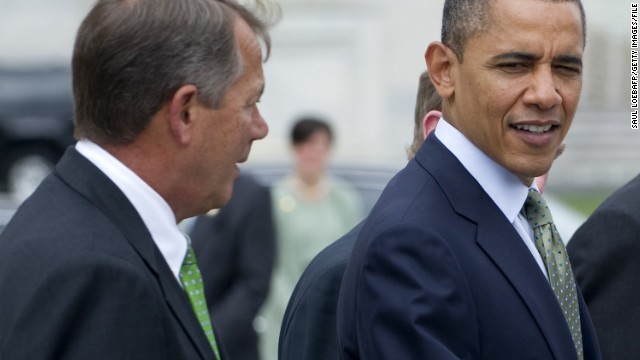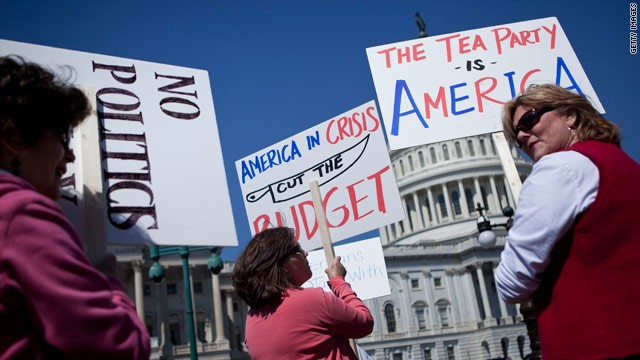Why are Americans still gloomy about the economy Global Public Square
Post on: 16 Март, 2015 No Comment

For more What in the World watch Sundays at 10 a.m. & 1 p.m. ET on CNN
By Global Public Square staff
The American economy is back. Last week, the IMF projected that the United States will be one of the very fastest growing advanced economies in the world in 2015. In fact, the American economy is just about the great exception in a world that is showing signs of economic stagnation.
Good news keeps piling on. The Congressional Budget Office just announced that the U.S. deficit fell by nearly a third during the fiscal year, which marks a 6-year low. Meanwhile, the Dow Jones Industrial Average and the S&P 500 both surged to record highs over the last month. And the most recent economic snapshot from the Labor Department says that private sector employment grew in September for a 55th month in a row, a record, and that the unemployment rate is now at 5.9 percent, the lowest level it's been since July 2008.
But, and here is the paradox, despite a relatively robust recovery now, Americans aren't feeling more prosperous. In fact, 56 percent of Americans told the Pew Research Center in August that they are "'falling behind' financially." That's pretty much the same percentage as in October 2008, during the heat of the Wall Street financial crisis.
So, why are so many despondent over the economy when the statistics say it's doing pretty well?
For some insight, listen to a recent interview that President Obama granted CBS News's 60 Minutes:
Obama: Ronald Reagan used to ask the question, "Are you better off than you were four years ago?" In this case, are you better off than you were in six? And the answer is the country is definitely better off than we were when I came into office. But now we have to make sure…
Steve Kroft: Do you think people will feel that?
Obama: They don't feel it. And the reason they don’t feel is because incomes and wages are not going up.
Well, the President is right. The one number that isn't up is the average American's pay check.
Look at the data from The Economist. which in turn cites Census Bureau and Sentier Research data. They show that during the first six years of Ronald Reagan's Presidency, the U.S. economy grew by 22 percent and the median household income also shot up by 6 percent.

Fast forward to Bill Clinton's first six years in the Oval Office and the nation's GDP grew by 24 percent, while median income increased 11 percent.
Then, it starts to turn. The first six years of George W. Bush's Presidency saw 16 percent GDP growth but a 2 percent decrease in median incomes. Likewise, the first six years of Obama's presidency have seen 8 percent GDP growth coupled with a decline in median incomes – a 4 percent decline, again according to the research in The Economist .
Indeed, when you adjust for inflation, census data shows that the American middle class is actually 1 percent poorer today than it was in 1989, when Reagan left office. That's also probably why Obama's job approval rating is about 20 percent lower than Reagan's was by the second October after his re-election, according to Gallup .
And guess what? The new employment report sees that trend continuing: the average hourly wage for Americans working in the private sector actually decreased by one penny last month.
Why are wages stagnating (or, even, falling)?
Nobody is actually sure. Generally, when unemployment drops, workers can demand better wages. That's not happening. And no one quite knows why. It could be globalization, with its endless supply of cheaper labor from around the world. It could be technology, which replaces people with machines and software. It could be other, more technical factors.
But we think we can confidently say that until all this changes – and until the majority of Americans who do have jobs see some improvement in their wages – they will feel gloomy. And that will have economic consequences in the years ahead but also political consequences in the weeks ahead.














